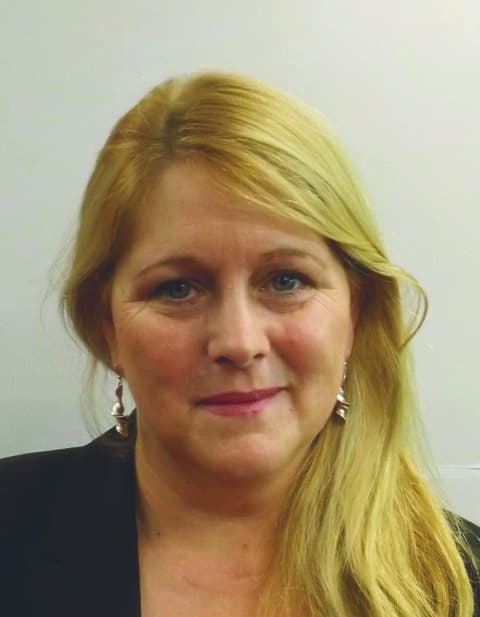
As treatment options become more varied, the corresponding care pathways often become more complex, unintentionally diminishing the experience for the patient. Historically, HCPs have focused – successfully – on treatment pathways using their expert clinical knowledge of treatment regimens, likely side effects and expected clinical outcomes from a medical perspective. However, this is not the whole story as we know, and this article highlights some of the many other aspects (both positive and negative) that can impact patient experience.
Wastage within healthcare systems affects everyone from HCPs, patients, carers and family members to the economy as a whole. The not- for-profit organisation All.Can suggests that 20% of healthcare spending is wasted on ‘ineffective treatment and care’, a figure supported by the OECD in its report Tackling Wasteful Spending on Health. When surveyed, patients often share their own concerns over inefficiencies within the healthcare system, and it is these shortfalls that represent opportunities for HCPs to improve care pathways for the benefit of all.
When mapping patient pathways, the inclusion of the Voice of the Patient (VOP) is widely valued, but is it actually happening?
For many people the pandemic has spelt untold pain and anguish. Compassion for those affected will continue to be of paramount importance for a long time to come and should not be brushed aside as we eagerly seek our new normal. It is vital, however, that we harness the technological advancements made across healthcare during this time, in line with the three main strands of the NHS plan to Build Back Better:
1. Tackling the electives backlog.
2. Putting the NHS back on a sustainable footing.
3. Increasing the focus on prevention.
Analysing any patient journey through the lens of the eight wastes of LEAN immediately generates a list of areas for improvement. Within IQVIA Pathway Transformation, we have helped clinical and service teams across the UK address unwarranted variation and inefficiencies. Feedback from these projects, often via patients themselves and observations common to all of us reveal both successes and potential to improve the patient experience:
1. Motion – as part of a metastatic cancer project at Hull University Hospitals Trust, patients commented on the excessive time required to walk between consultation rooms and the pharmacy. As a result of the feedback, the Trust relocated the oncology consultation rooms closer to the pharmacy, improving the hospital experience for patients.
2. Over-processing – in hospitals across the country, COVID-19 has forced longer gaps between patient follow-up visits, raising the question whether the cadence can indeed be safely extended in some cases, as previous follow-ups may have been unnecessarily frequent.
3. Inventory – the rapid adoption by patients of technology allowing electronic repeat prescription requests has allowed digitally aware patients to tailor their requests to reorder only what they need.
4. Transportation – long before COVID-19, University Hospitals Plymouth NHS Trust had created ‘a single, secure digital health record for every patient, accessible from any location at any time’. Completing the switch from paper-based notes to digital records across the UK is paramount to avoid patients arriving for appointments without notes.
5. Rework – Genomics England is currently working on initiatives to ensure genetic testing is done correctly to reduce the need for patients to return for a second biopsy.
6. Over-production – unnecessary diagnostic testing is an area for waste reduction; time will tell which pathways, that have been adversely affected by COVID-19 delays, have managed to maintain clinical outcomes, subjecting patients to fewer tests and procedures.
7. Waiting times – we are all familiar with the angst that patients feel while waiting for test results. The roll out of the NHS app has allowed patients to access their own GP records and view test results as soon as they are available.
8. Staffing – as NHS staff shortages bite, it is crucial that best practices from pre-pandemic days, such as dedicated, disease-specific Clinical Nurse Specialists (CNS), are not diluted into more generalist CNS roles. The emotional support provided by the CNS is deeply valued by patients. The challenge will be to retain personalised support for patients as job roles expand to cover staffing gaps.
Listening to patients’ experiences, insights and expertise is key to creating patient-centric pathways. This is a win-win approach for HCPs and patients (and their carers) as responding to the Voice of the Patient leads to more efficient, connected and informed care. Furthermore, through innovations in digital technology, it is now easier than ever to ensure the patient experience is solicited and is central to the design of new models of care. The UK is a pioneer in bringing digital technologies into healthcare to support patient care, and a recent IQVIA report identified England as the most mature of the top five European countries in terms of digital health system maturity.
As we regroup from the pandemic, patient pathways will benefit from a refresh. Medically evidenced adjustments, such as longer intervals between follow-up appointments (if proven to be clinically safe), and telephone and video consultations will reshape the pathway map considerably. However, one hidden casualty of the pandemic seems to be the adequate provision of emotional support for patients and carers. For patients, one of the most important considerations of their diagnosis is how it will impact their own family and their access to appropriate nursing support, a major contributor to a patient’s emotional well-being, which in turn can affect their clinical outcomes.
Pathway transformation experts at IQVIA regularly work with NHS teams, patient representatives and patient survey results to map existing pathways, identify barriers and co-create future-proofed solutions.
Ingrid Martin is Director, Pathway Transformation at IQVIA




